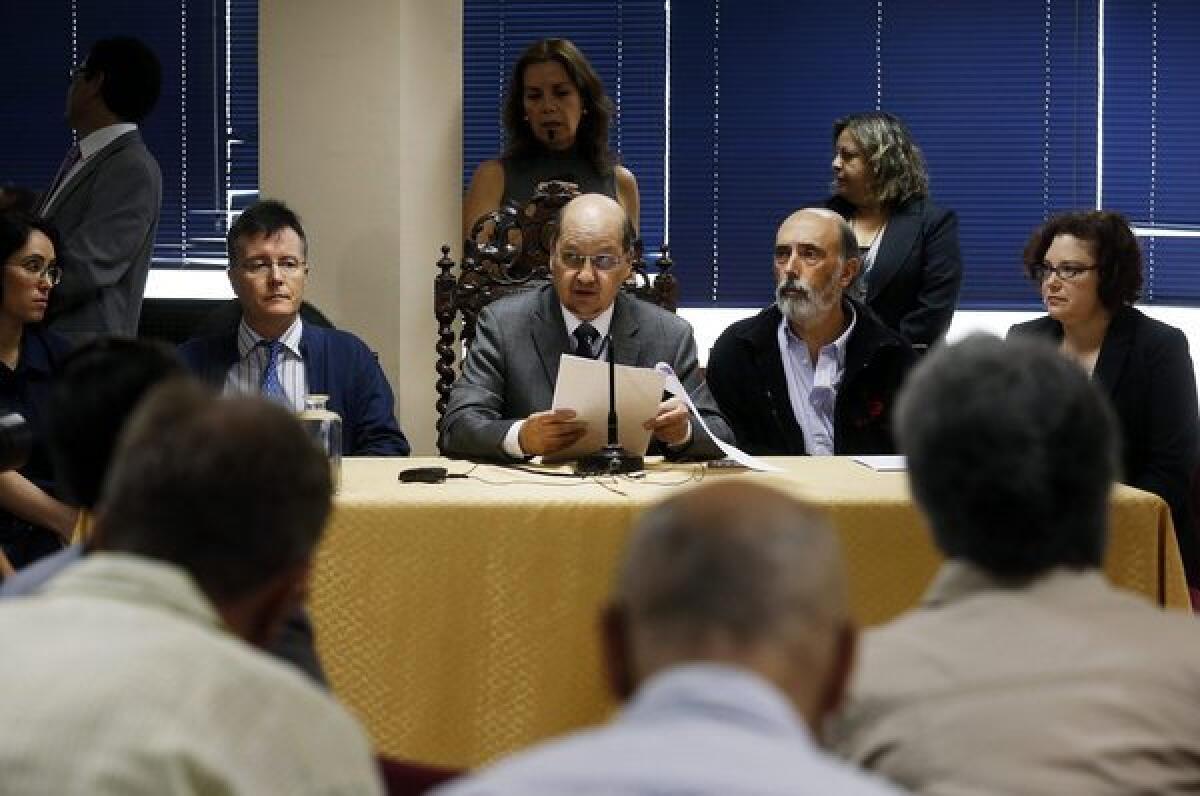No poison found in exhumed remains of Chilean poet Pablo Neruda

No traces of poison were found during tests of the exhumed remains of Chilean Nobel laureate Pablo Neruda, forensics experts reported Friday after a six-month investigation.
The revered South American poet and avowed communist died just 12 days after the Sept. 11, 1973, coup that deposed his friend and fellow leftist, Chilean President Salvador Allende. Although suffering from prostate cancer, Neruda’s sudden turn for the worse in his final days stirred suspicions that he might have been murdered by the right-wing regime of Gen. Augusto Pinochet.
Neruda’s driver and aide, Manuel Araya, had long maintained that the poet told him he was given an injection in the stomach by an unknown doctor at Santiago’s Santa Maria Hospital that produced severe nausea that worsened until his death.
Neruda had published a denunciation of the Pinochet coup just days before he died, and had been preparing to go into exile in Mexico. His death on Sept. 23, 1973, spurred suspicions that the military dictatorship had the revered poet murdered to prevent his going abroad and attacking the regime’s authority from afar.
The Chilean government opened an investigation in 2011, and a court last year granted a request from Communist Party officials and Neruda relatives for the poet’s remains to be exhumed and tested for evidence of poisoning.
In April, Neruda’s body was removed from a tomb at his Pacific coast home in Isla Negra, west of Santiago.
“No traces of chemical agents have been found,” Patricio Bustos, director of the Chilean Forensic Service, told a news conference in Santiago on Friday.
On the contrary, the forensics report noted, the examinations by Chilean, U.S. and Spanish pathologists “confirmed the existence of metastatic lesions disseminated in various segments of the skeleton that correspond exactly with the disease for which Mr. Pablo Neruda was being treated.”
The findings did little to satisfy those who suspect the poet was killed by the regime.
“Today we are going to request more samples. They [forensics experts] referred to chemical agents but there are no studies about biological agents” Chilean Communist Party lawyer Eduardo Contreras told the BBC and other news agencies in Santiago. “A very important chapter has closed and was done very seriously, but this is not over.”
Neruda’s nephew, Rudolfo Reyes, also said he wasn’t satisfied with the forensic study’s conclusions.
“There’s still a way to go,” Deutsche Welle quoted Reyes as saying.
Neruda, renowned for his surrealistic and passionate poems, won the Nobel Prize in literature in 1971. He has been described by his friend and fellow Nobel laureate Gabriel Garcia Marquez of Colombia as “the greatest poet of the 20th century.”
ALSO:
Palestinians blame Israel for Arafat’s poisoning
Unfit for a king? Retired Belgian royal struggling on $1.2 million
Sochi Olympic torch: A diving, climbing, spacewalking competitor
Twitter: @cjwilliamslat
More to Read
Sign up for Essential California
The most important California stories and recommendations in your inbox every morning.
You may occasionally receive promotional content from the Los Angeles Times.











